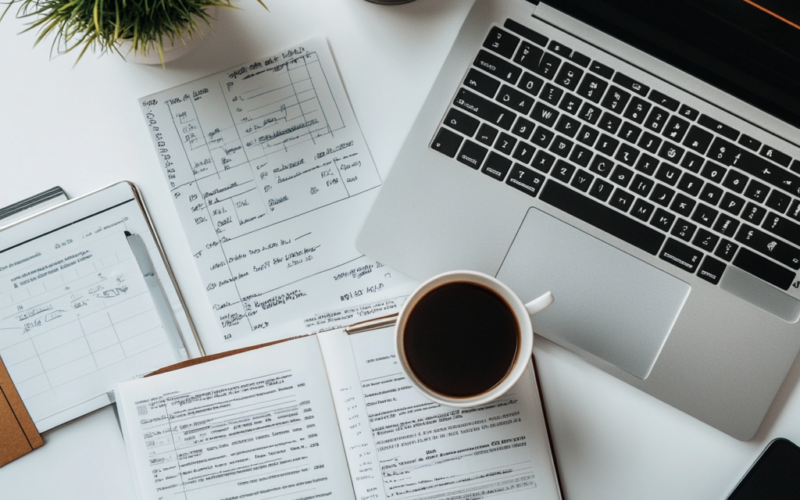Freelancing means freedom, a flexible schedule, and the ability to choose your own projects. However, with that freedom comes responsibility—especially when it comes to finances. One of the most important aspects is taxation. Many beginners believe they can work “under the radar” without registering their activity, but this can eventually lead to serious consequences: fines, penalties, or even account blocks. That’s why understanding tax obligations isn’t just a recommendation—it’s an absolute necessity.
Unlike employees at companies, freelancers don’t have accountants keeping track of their taxes and reports. This means the entire tax burden lies on the freelancer’s shoulders. Ignorance of the law doesn’t exempt you from responsibility, and mistakes can damage your relationship with tax authorities. It’s important to set up a system of registration, record-keeping, and reporting right from the beginning to avoid issues later.
What Taxes Do Freelancers Need to Pay?
The first thing every freelancer needs to understand is that if you’re earning income, you have tax obligations. The main tax is the Personal Income Tax (PIT). If you’re registered as self-employed, the rate is only 4–6%. If you’re an individual entrepreneur (IE), the rate depends on your chosen tax system. If you’re unregistered and receiving income—especially from abroad—you may face the standard PIT rate of 13–15%, which is often less favorable.
Another potential tax is Value-Added Tax (VAT). This usually doesn’t apply to freelancers on simplified systems or self-employed individuals. However, if you work with legal entities, especially international clients, they may require invoices that include VAT. In such cases, you’ll need to register as a VAT payer, which adds complexity to your accounting and increases your tax burden.
Don’t forget about insurance contributions. Individual entrepreneurs are required to pay annual fixed contributions to the Pension Fund and the Mandatory Health Insurance Fund. These payments are not income-dependent and are essential for building your retirement history. Self-employed individuals aren’t obligated to make these contributions, but they can do so voluntarily if they wish to receive a pension in the future.
How to Choose the Right Tax System for a Freelancer
Choosing the right tax system depends on your work format, income level, and willingness to keep records. The General Tax System (GTS) is suited for those who work with large companies, need to issue VAT invoices, and have a high volume of transactions. It’s complex and requires detailed accounting and frequent reporting, but it allows collaboration with major clients.
The Simplified Tax System (STS) is one of the most popular choices among freelancers. It comes in two forms: “Income” (6%) and “Income minus expenses” (15%). The first option is easy to manage, while the second is beneficial if you have high expenses that you can document. The STS offers minimal reporting requirements and lets you legally reduce your taxes.
The easiest route is to register as self-employed. This isn’t the same as being an entrepreneur—it’s a separate tax regime with a low rate (4% for individuals, 6% for companies) and no reporting obligations. All operations are managed through the “My Tax” app, and taxes are calculated automatically. The downside? There are restrictions on the types of activities allowed and an annual income cap (2.4 million rubles).
How to Properly Track Income and Expenses
Accurate bookkeeping is more than just tracking your money—it’s a key part of tax compliance. Keeping records helps you avoid errors when filing your tax return, calculate your tax burden correctly, and prove the validity of your expenses. The clearer and more transparent your records are, the smoother your interactions with the tax office will be.
The golden rule is to record everything and save your documents. This includes contracts with clients, service completion reports, receipts for expenses, invoices, and bank statements. These documents not only prove your income but also allow you to deduct expenses under the “income minus expenses” system. Without documentation, you risk tax reassessments and penalties.
You can make this process easier with online services and accounting software like Kontur, Moё Delo, Elba, or for the self-employed, the “My Tax” app. These tools automate your bookkeeping, generate reports, and remind you of tax deadlines. Using digital solutions isn’t a luxury anymore—it’s a necessary part of modern freelancing.
How to File Tax Returns
Filing tax returns is mandatory for individual entrepreneurs and freelancers using GTS or STS. Self-employed individuals are exempt from this obligation—their taxes are calculated automatically. Everyone else needs to understand the process. First, gather all necessary documents: income statements, expense reports, invoices, bank records, etc. Then fill out the tax return via your personal account at nalog.ru or use dedicated accounting software.
The deadline for submitting your return depends on your tax system. For example, entrepreneurs on STS must file their return by April 30 of the year following the reporting year. Missing this deadline can result in fines, so set reminders and don’t delay. A common mistake is incorrect data entry or forgetting to report a payment, so double-check everything carefully.
Here’s a step-by-step overview of the filing process:
- Gather all supporting documents.
- Fill out the tax return online or using accounting software.
- Review all data carefully for errors.
- Submit the return to the tax authority before the deadline.
- Pay your taxes by the required deadline (usually by July 15).
Also, we advise you to read our article, in which we told you whether it is worth investing in music rights.
FAQ
Do I need to pay taxes if I’m a freelancer working independently?
Yes, if you earn income, you are obligated to pay taxes—whether or not you’re registered as an entrepreneur.
What’s more beneficial: registering as a sole proprietor or self-employed?
Self-employment is simpler and cheaper for beginners with lower income. Sole proprietorship is better for higher income and working with legal entities.
Can I avoid paying taxes as a freelancer?
No. Tax evasion leads to fines and blocked accounts. It’s better to choose a legal tax regime and pay what you owe.

